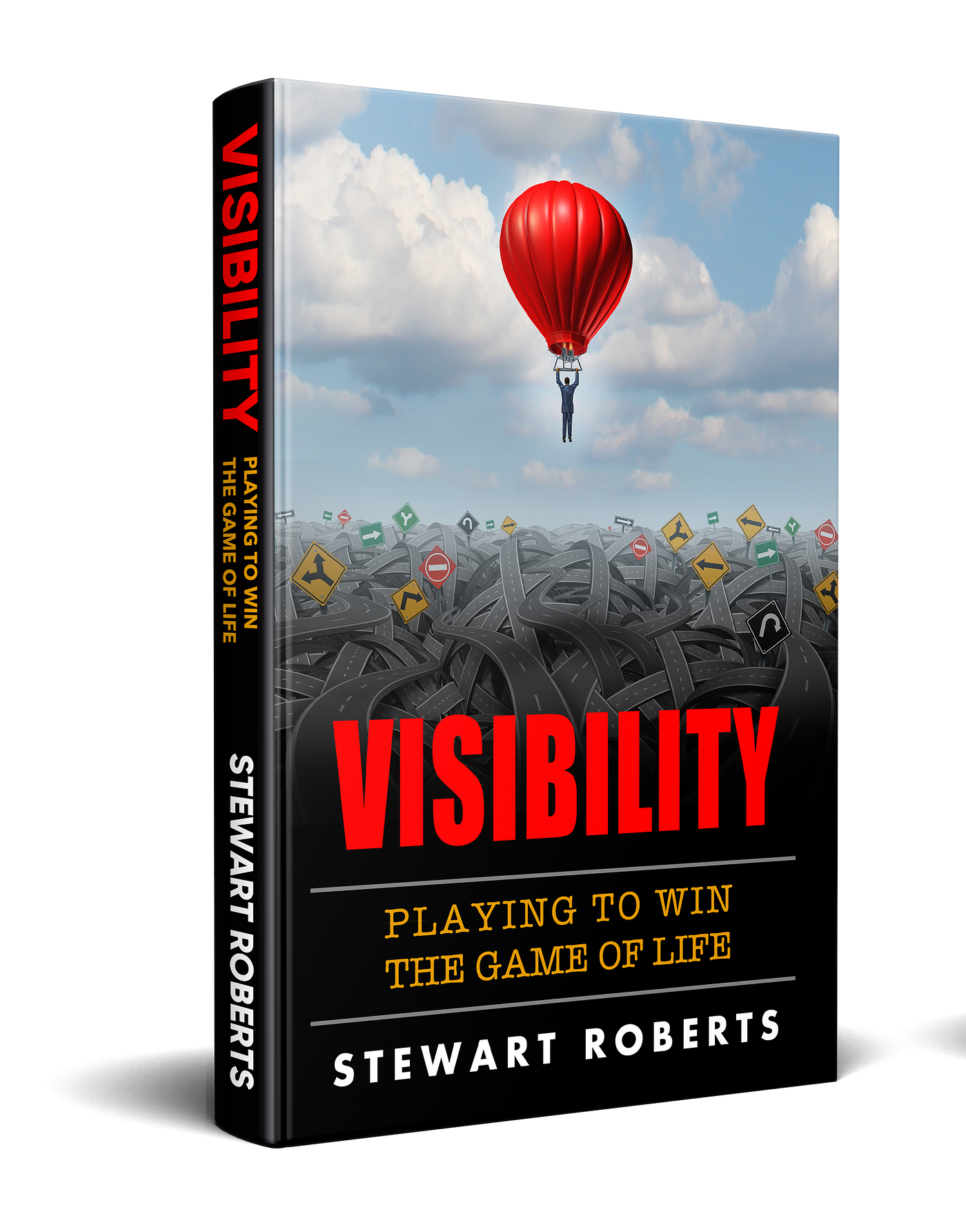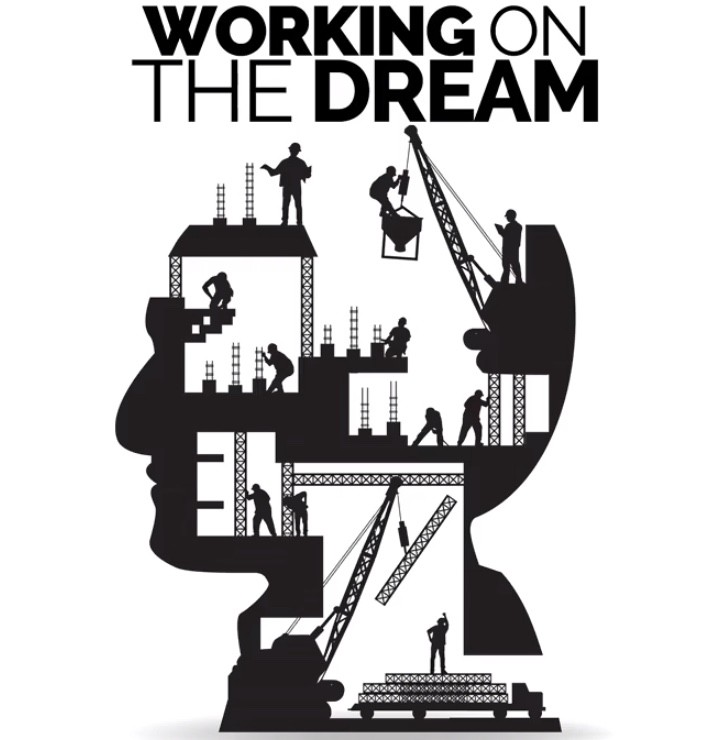“Men who complete training have a distinct awareness of what they want and why. If not, doubt takes over and they quit.”
Greg Hake, Navy SEAL
There comes a point in Navy SEAL training when you’re tested mentally, far beyond your physical capabilities and lacking the mental wherewithal, you’ll give up. During Hell Week, recruits face continuous drills for five days and nights without sleep.
Tom, is a stellar athlete, an Adonis who outperforms others in every physical challenge; push-ups, runs and on the obstacle course. Three days in, on a 10-mile run, Greg, running at a faster pace, began gaining ground on Tom and soon passed him. Uncomfortable being passed and aware that he was falling behind, Tom sprinted ahead, passing Greg. Maintaining his momentum, Greg overtook Tom a second time. This was too much for Tom to handle; the Adonis, built to compete, gave up before the end of the run and rang the bell.
Reflecting on the experience, Greg commented, “I don’t think Tom ever considered a situation in which he would not be first”.
For people accustom to competing and winning, when unable to live up to their own high expectations and seeing themselves as inferior, they’re unable to cope; it’s as if there’s no room in their life to be anything but first.
A Yale English professor discusses this phenomenon in writing about first-year students who break down after receiving anything less than an A letter grade. “Until this point in their young lives, students are repeatedly told how gifted they are and their identities are closely linked to their exceptional performance.”
Having never experienced failure before, when faced with underperforming, they struggle, some breakdown and even quit.
A typical SEAL class includes 1,000–1,500 men, of which 100-150 are selected. Of those chosen, fewer than 30 percent graduate. To be among this select group of elite fighters who carry out covert, global operations in the world’s dangerous regions, applicants must complete a series of test over a 24-week period, arguably the most difficult human conditioning known to man. Training test physical aptitude and mental toughness. More SEALs have died during training than in combat.
What allows a five foot, ten, 173-pound, self-described non-athlete to out-compete the physically superior Toms of the world? Greg recalls, what kept him going — his ability to breakdown workouts into digestible chunks.
“You keep your head down and keep going. When you get a break, enjoying the moment versus dreading what’s to come is key”. I found myself thinking, “I’m gonna relish this opportunity to rest as much as possible. The body has to have the physical capacity to follow the mind. Hell Week is a solid reset for what’s humanly feasible. It’s not about being the most talented, the smartest or athletically remarkable, but more about having the grit to stay in the fight.”
Searching for the path of least resistance is human nature and over time, the biggest challenge is the mental obstacles we develop in our mind. Focusing on how far we have to go, the gap, drives us mad. Our mind struggles to accept how uncomfortable it will be, continuing until the end.
These lessons apply to everyone, to our willingness to get up again when knocked down; our commitment to not giving up. This applies to our food consumption, staying fit, marriage, parenting, as well as our interests and ambition.
My purpose is rescuing men from a fate far short of their capabilities. Each time another man chooses to walk this road, his success holds exponential ramifications for all of the people in his life; his children, spouse, parents, himself and countless others. How wonderful the world would be if everyone lived their purpose.
People frequently ask, “what does happiness look like?” I like David Wagner’s definition; happiness is about having a clear vision, actively pursuing it with a spiritual connection, without getting distracted by the petty details confounding so many.
Throughout Hell Week, each cadet is forced to question whether or not they can continue. Men are kept uncomfortably wet, following sunset the temperature drops and they become extremely cold. Trainers carry hypothermia tables telling them how far recruits may be pushed before risking death.
Greg remembers having to get back into the ice-cold water, wet with the entire class linking arms. “We took that first step, the cold shooting through our bodies, looking left and right, every man wore the same panicked expression.”
The man to Greg’s left started sobbing uncontrollably. Greg continues, “they instructed us to lie down, arms locked, while ice-cold waves washed overhead, the surf pummeling us.
Once we entered unbearable conditions like these, we never knew how long the instructors would make us suffer.” Instructors are trained to root out weakness, and when someone is breaking down, they pressure them to give up. “I found myself in an unbelievably bad place and this guy’s bawling made me want to lose it.”
This experience is similar to the vomit reflex. In the company of other people throwing up, we want to vomit. The feeling is overwhelming, eliciting a natural, uncontrollable impulse.
Greg, “I was so close to quitting and this person kept pushing me, testing my limitations.” In this state of mild hypothermia, Greg had serious doubts about his capacity to continue, “if we stayed in the water too long, I didn’t think I could handle it.”
Few things in life prepare us for moments such as these. Without our why, we’re simply unable to endure.
Our mind holds a strategical advantage over our decision-making, knowing our physical limitations and continuously searches for the easy way out. Exposed to suffering for any length of time and we find ourselves debating the merits of why we are doing it, and rationalizing quitting. Our comfortable life choices are leading us down the road to mediocrity.
What’s at risk: Existing in a purposeless life. Purpose is the cornerstone to a meaningful life. A life without intention is the greatest tragedy. Without it, we are directionless in how to allocate time or use resources. Without clarity, our decisions are influenced by momentary moods, others actions and pressure.
Purpose is as fundamental as water and air. It distinguishes the non-essential activities from the essential. Knowing our purpose guides us, clarifying what we need to do and what we don’t. Our purpose isn’t limited or controlled by our past. The beauty of life is we have a talent for reinventing ourselves. During challenging times, we’re pulled off course, making mistakes. At these times, others need more patience and appreciation from us. It is our why that brings us back.
If our purpose remains unclear, the question becomes, how do we find it? For each of us the answer is unique and requires introspection. Men lacking purpose are prone to conflict, stress and blaming others. Without purpose, we operate on autopilot, numb to life and our place in it. Men in this state are pulled in multiple directions by others enlisting them for their purpose. Do you know anyone like this?
Fear restricts us. Existing with half a life born from hesitation prevents us from achieving our purpose. Towards the end of life, regret about what we might have experienced occupies our thoughts. Fear traps us, acting as a self-imposed prison preventing us from realizing our potential.
Stories of people who have everything, yet remain miserable are well-known. F. Scott Fitzgerald wrote about 1920s affluence, an idle, pointless life spent searching for the next high. Undisciplined leisure combined with habitually choosing the easiest route, waste a life.
Those driven by materialism believe having more stuff makes them happier, better, more important and more secure but it’s never ending; as soon as they acquire the home or car, within months it loses its distinction, leaving them searching for the next shiny pebble.
Conventional wisdom sells us on the idea that affluence provides us with what we want; a leisurely, problem free existence, one in which money solves most complications. Anyone whose accumulated wealth understands, this is a lie. Problems don’t disappear with success; instead, they evolve, becoming more complex.
I felt this material pull when we bought our dream home. Buying the house was like buying happiness; I remember looking around the house thinking, how could anyone be unhappy here?
This isn’t to say it’s impossible to live well and remain happy; the two are not mutually exclusive. Indeed, you can have both. But for me, the house was a symbol of everything that was wrong. My need for material wealth, led me to the unaddressed insecurities of my youth, back to the affluent neighborhood, where I didn’t think I measured up.
Within months of settling in, our marriage showed signs of strain. Working out of town each week to fund our lifestyle, I had little tolerance for what I saw as the triviality of a stay-at-home routine, enshrouded in a luxurious home life.
Faced with my reality that expensive luxury cars and a six-bedroom house couldn’t cure, it was inescapable, I was still insecure. I had delivered on my responsibility, with how most high-achieving men keep score — money. This is what I thought I signed up for in marriage, and even more fundamentally, my role as a man.
Knowing why you’re here gives life meaning. Once life holds meaning, anything may be overcome, but without meaning, nothing is bearable.
Co-founding our Shanghai-based trading company, I was convinced I found my calling. After we sold the business, I once again struggled to answer the question, “what’s my why?”
Purpose doesn’t come from a job you eventually leave or a business you one day sell. It comes from finding your why.
True security may only be found in that which cannot be taken from you. Uncovering yours, allows you to spend time leading a full, rich life, waking up each morning appreciating the world you’ve created for yourself and fulfilling your objectives.
It’s been said 10,000 hours is required for mastery. Many of us have yet to invest this kind of time into one skill, yet we’ll spend over 150,000 hours working during our lifetime. This is a lot of time, enough to make sure it’s something purposeful.
Finding satisfaction isn’t something we’re taught. I continually meet people who are talented, admired by others and still, are unfulfilled. They have similar profiles; work hard, apply themselves and receive what they thought they needed, money and the toys to go with it. They occupy important, influential positions affording an enviable lifestyle.
From a distance, others seeing all that success buys, comment, “you should be happy, you have so much.” But outsiders too often fail to understand the nagging feeling of unrealized potential. Too many of these achievers are bored, angry, frustrated asking themselves “is this it? Are my greatest days and best years of my life behind me?”
Few things would be worse than waking up at 70, knowing my potential was never fulfilled, realizing I had an opportunity to do something profound and never acted.
Reading this, you’re someone who is seeking more and with an open-minded approach, introspection and a dose of humility, you will find it. Doing so requires honesty about your shortcomings and mistakes.
Living a purposeful life demands vision. Purpose and accomplishment are what propels us. It’s who we are at our core. It gets us out of bed in the morning and allows us to feel great about ourselves when we go to bed each night.
What is the driving force, the why, in your life?

Stewart Roberts: Father, husband, entrepreneur, angel investor, guest lecturer, board member, volunteer. Stewart worked for Morgan Stanley in New York City, co-founded TIX China, a Shanghai-based trading company; studied at Harvard and served as Orange County President of Tech Coast Angels. He has guest lectured at both UCLA’s Anderson School and USC’s Marshall School of Business. For eight years he served as a CASA mentor. Today, he leads men through life’s transitions with books, boot-camps, masterminds and online courses.


